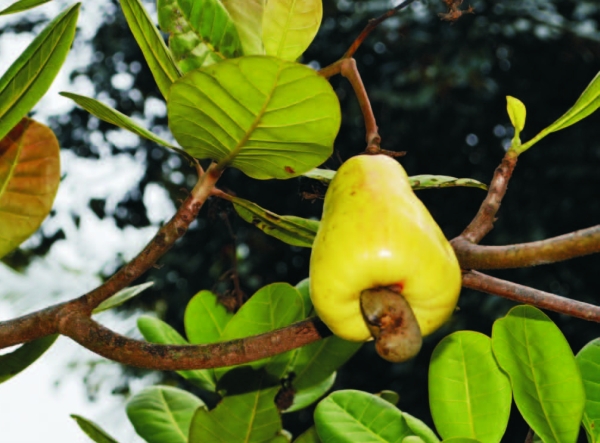Palawan is still the leading producer of cashew in the Philippines owing to the 93 percent cashew nut production. Official data obtained from Provincial Agriculturist Teresita Guian indicated that the area planted to cashew reached to 62,859 hectares as of June 2013.

While Palawan’s share on nut production is high, cashew farmers are still facing problems of low income from their production. Identified factors included inferior quality of processed kernels (cashew fruit seed) and unutilized cashew apple (flesh or meat).
Very little activity is being done on processing cashew apples in terms of value-adding. Since the nut is only 10 percent of the total average weight of the fruit, around 90 percent is wasted. With the anticipated increase of nut production because of its expansion program, proportionate apple increase is likewise anticipated. The Bureau of Agricultural Statistics (BAS) reported that cashew production went up yearly by an average of 4.47 percent from 113.07 thousand mt in 2006 to 134.68 thousand mt in 2010.
To address farmers’ low income and wastage, the Department of Agriculture (DA) – Palawan Agricultural Experiment Station (PAES) – Research Outreach Station (ROS) in Puerto Princesa, proposed a project titled “Technology Commercialization of Cashew-based Products/Agri-based Enterprise Development Project” to the Bureau of Agricultural Research (BAR) through its National Technology Commercialization Program (NTCP).
The project, which is now on-going, aims to introduce and promote other cashew value-adding activities that can be developed and at the same time generate viable agribusiness enterprise for the cashew municipalities in Palawan. The lead proponent or project leader is Ms. Librada L. Fuentes, chief, Research and Development Section of PAES-ROS.
Ms. Fuentes said that cashew in Palawan is sold outside the province as raw material, not as a processed product. This is due to lack of good processing and packaging technologies in the province. If value-adding technologies on cashew will be promoted to cashew growers, profit of farmers will significantly increase. With the technical and financial intervention of BAR, the processing center, equipment and other facilities were made possible through the assistance of the agency. The facility is now called “Agri-based Processing and Techno Center.” The building was officially inaugurated in October 2012 by Agriculture Secretary Proceso J. Alcala.
The establishment of the Center paved way for the development of new cashew-based products like bandi, nougat, brittle, polvoron, and pastillas, other than the traditional roasted and fried cashew nuts.
The project leader also said that with the establishment of the Center, farmers are now selling the cashew apple at P11.00 per kilo, which is not bad for something not valued before. With the value-adding technologies developed, the apple extracts are now being used as raw materials for making cashew juice, cashew wine, cashew prunes, and cashew soap, the latest product of PAES. If the cashew soap will progress, it will be the first of its kind, Ms. Fuentes revealed.
Cashew product diversification in terms of value-adding will boost farmers’ income and more importantly, address the issue on wastage. With value adding, the price of cashew could go as high as P200-300 per kilo. This in turn will benefit local farmers.
With this development, the cashew industry will not only be known for its processed nuts, but also for other high-valued cashew-based products, making the province of Palawan among the list of exporting provinces in the country. ###
Source: Patrick Raymund A. Lesaca, Bar Chronicle July 2013 Issue (Vol. 14 No. 7)
